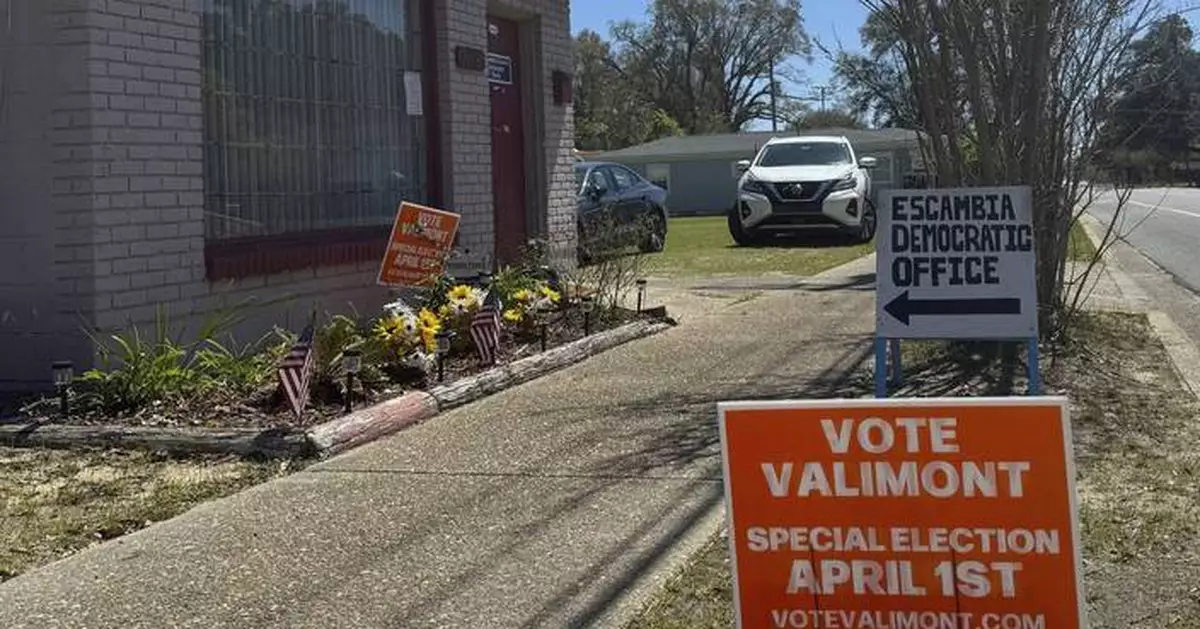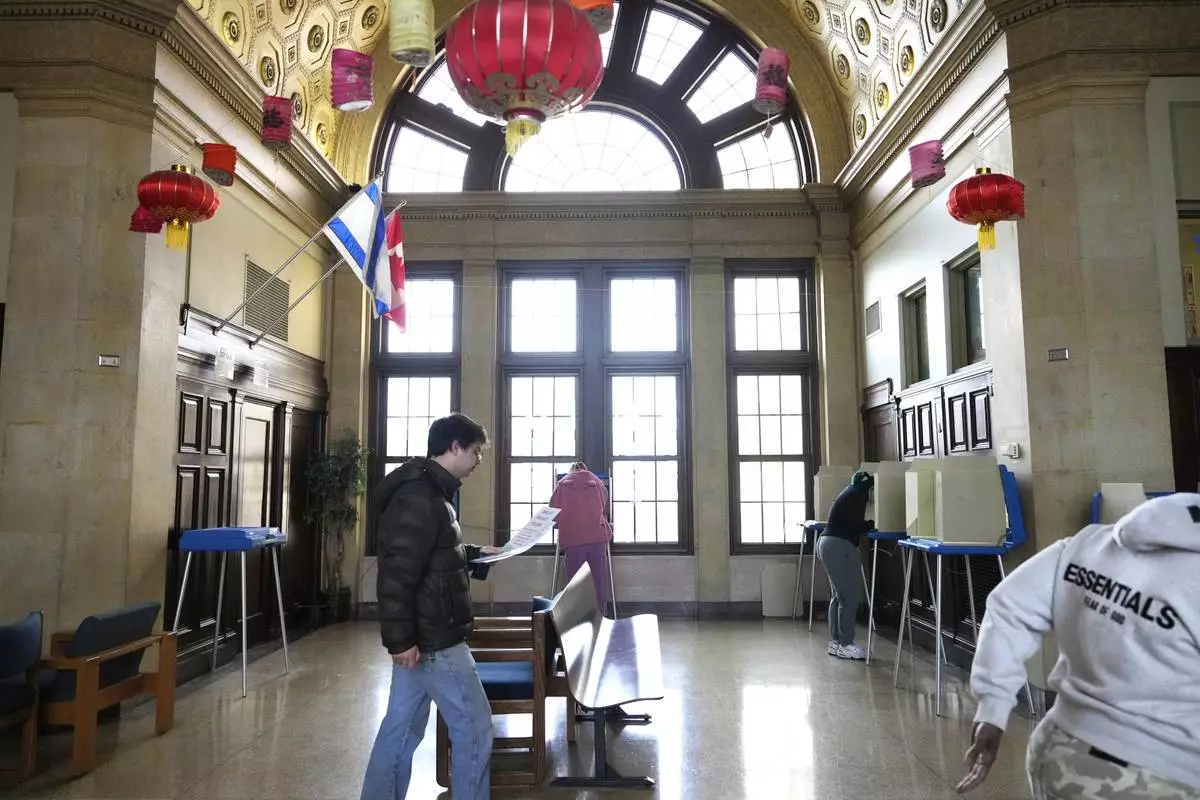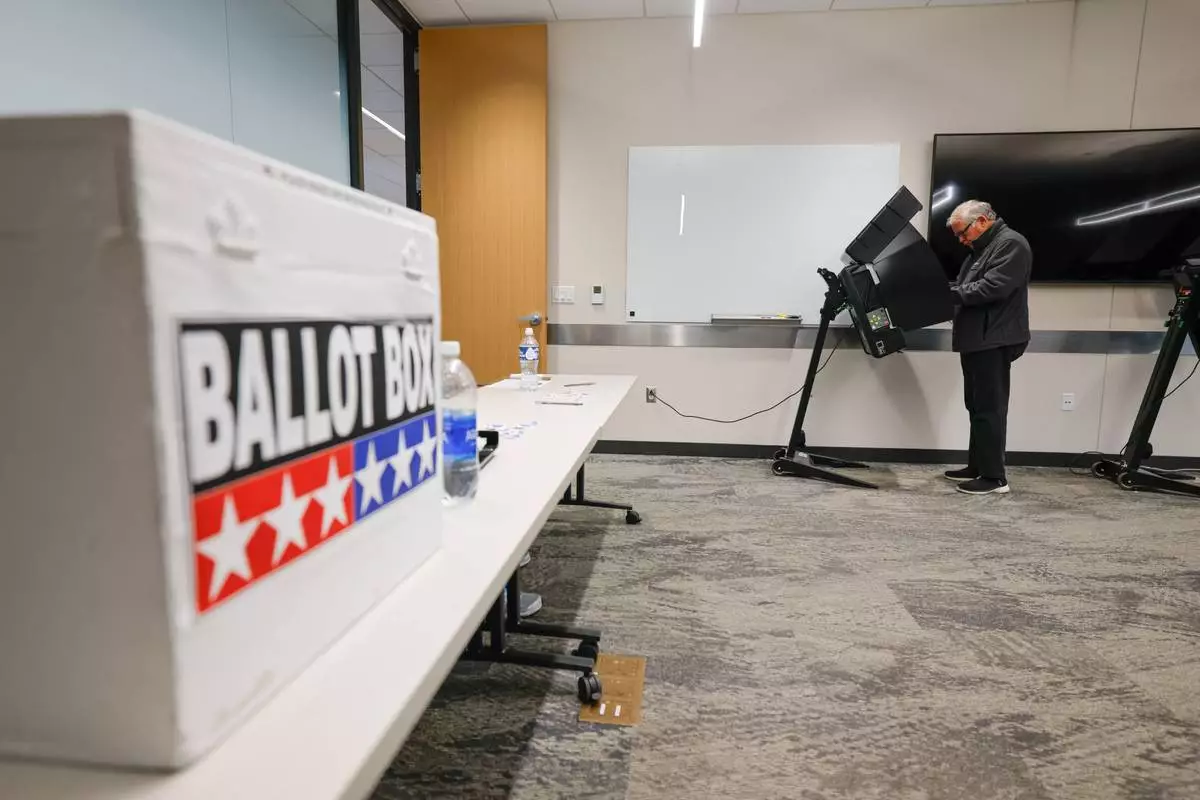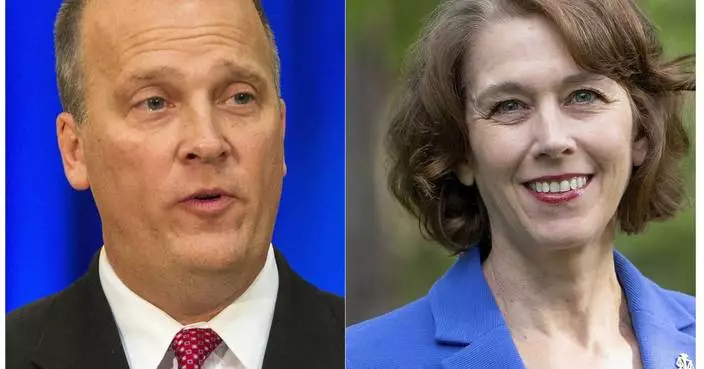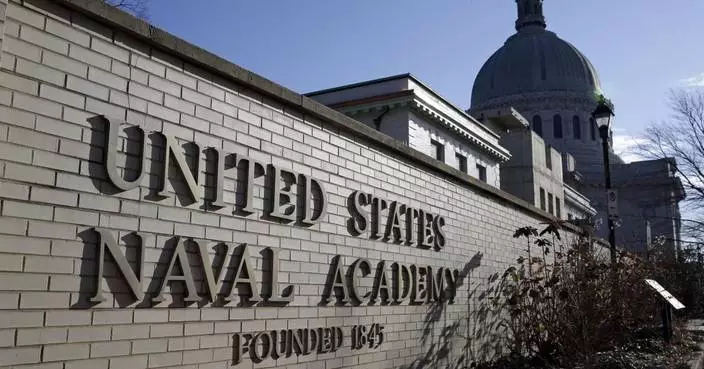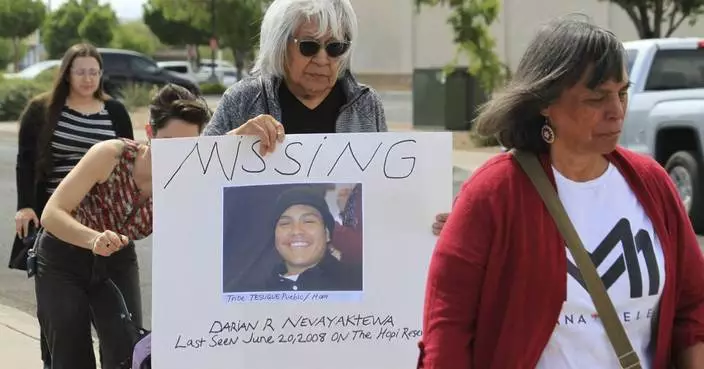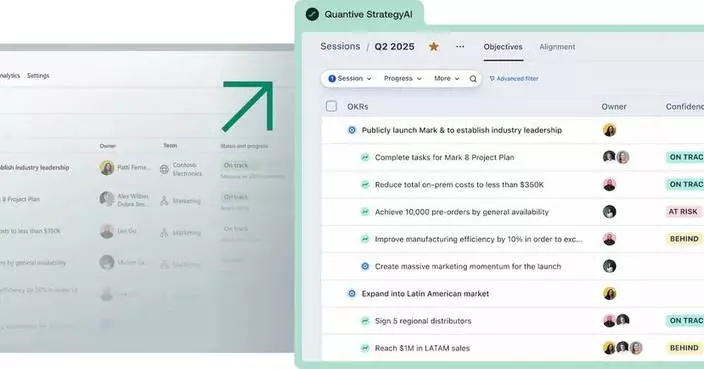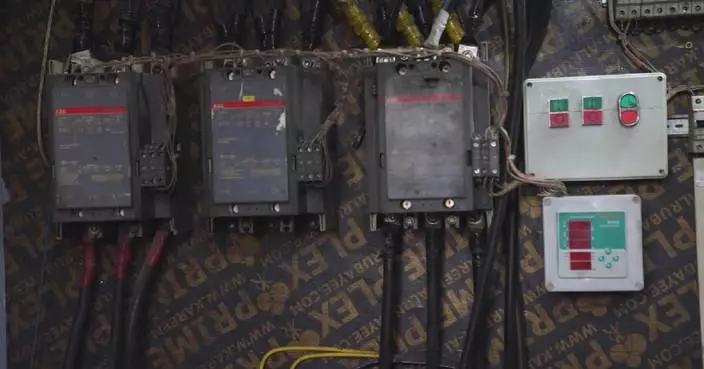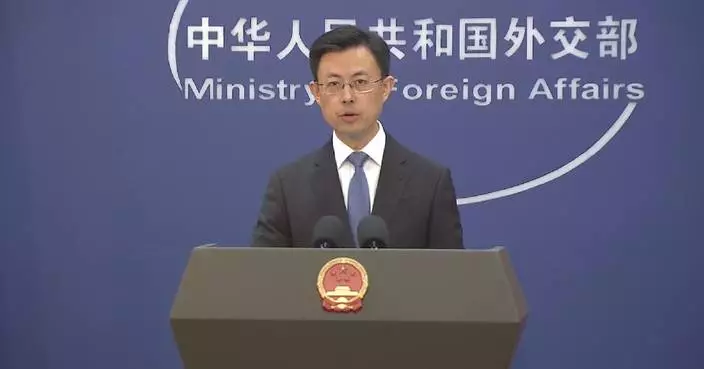TALLAHASSEE, Fla. (AP) — Democrats, with few electoral outlets for their outrage at President Donald Trump's dramatic restructuring of the federal government, are pouring millions of dollars into two special elections in Florida.
That's where Democratic candidates are trying to accomplish the improbable by flipping a pair of Trump-friendly congressional seats and carving into Republicans’ narrow 218 to 213 majority in the U.S. House of Representatives. While Democratic leaders aren't predicting outright wins in such Republican-leaning districts, they say they think they'll exceed expectations. And they sound especially hopeful about the 6th Congressional District, where a public school teacher has out raised a Trump-endorsed state senator by a nearly 10-to-1 margin in the race to replace Mike Waltz, who was tapped by Trump to be a national security adviser in what was widely seen as a move without much political risk.
Democrats' challenge in both districts is formidable, but the money has been pouring in.
“The floodgates have really opened,” said Aubrey Jewett, a political scientist at the University of Central Florida. “It’s like, wow.”
Republicans, including Trump, have noticed too, and are looking to head off an embarrassing outcome. The president joined both Republican candidates by telephone on separate tele-town halls Thursday to help get out the vote in the “all-important" elections.
Winning both races next Tuesday would be colossal for a Democratic Party that has struggled to settle on a way to push back during the early days of the second Trump administration. Winning either — or even narrowing the margin in districts the president won by more than 30 points less than five months ago — could help alleviate the panic that set in among party leaders after Republicans swept both houses of Congress and the presidency in November.
National Democrats point to the fundraising hauls in some of the most conservative parts of Florida as a sign that voters are already fed up with the president’s aggressive second term, a message they’re hoping to parlay into grassroots support — and more money — ahead of the 2026 midterms.
Voters in Florida’s 1st and 6th Congressional Districts will be among the first to put the new administration to an electoral test in the April 1 special elections to fill seats once held by former Reps. Matt Gaetz and Waltz, who were both tapped to join the Trump administration.
Gaetz withdrew from consideration to be attorney general amid allegations of sexual misconduct, which he has denied. Waltz currently finds himself at the center of controversy over the texting of sensitive military plans for an attack on Houthis in Yemen to a group that included a journalist.
Democrats Gay Valimont in the 1st District and Josh Weil in the 6th District have both far outraised and outspent their Trump-backed Republican competitors, in districts the president won by 30 points or more in 2024.
Florida Chief Financial Officer Jimmy Patronis, who’s running in the 1st District, and state Sen. Randy Fine in the 6th District have both campaigned as staunch allies of the president, who endorsed them in the primary.
But with donations for the Democrats flooding in from all 50 states, Republicans are funneling resources into the races in the hopes the GOP won't “get embarrassed” Tuesday by a better-than-expected showing by Democrats.
“I want it to be a landslide,” said Doug Stauffer, chair of the GOP in Okaloosa County, which is part of the 1st District. “And if it’s not, then we haven’t done the right thing for the constituents.”
House Minority Leader Hakeem Jeffries is already pushing the message that if Democrats overperform in the districts, resistance to Trump’s second term could help them take back the House in 2026.
“These are races that should not under ordinary circumstances be on anyone’s political radar. They are safe Republican seats that Donald Trump won by more than 30 points,” Jeffries told reporters this week. “The American people are not buying what the Republicans are selling. That is why they are on the run.”
In the 6th District, which extends north of Orlando, Florida, Weil has pulled in an eye-popping $9 million, according to the most recent campaign finance reports. That’s nearly 10 times the fundraising reported by Fine, a self-described “conservative firebrand” and former gambling industry executive known for his anti-LGBTQ stances and combative approach to politics.
In recent days, Fine has come under pressure from Republican leaders to raise more money, and has ponied up $600,000 of his own fortune for his campaign, he told The Associated Press. Plus, outside groups are spending more than $2 million to help Fine, according to data from AdImpact, narrowing the fundraising gap.
North Carolina Rep. Richard Hudson, chair of the National Republican Congressional Committee, acknowledged that Fine should have stepped up his fundraising earlier, but said he'll be a strong member of Congress.
“I’m not concerned about margins,” Hudson said. “I mean, special elections are special.”
According to an email shared with the AP, even people in Florida Gov. Ron DeSantis’ orbit are working to gin up support for Fine — a notable development because of the venom the two Sunshine State Republicans hold for each other, after Fine publicly turned on DeSantis to endorse Trump during the 2024 presidential primary.
In a message to voters this week, a DeSantis staffer urged “grassroots warriors” to knock on doors and make phone calls in the 6th District, saying the race “is at a critical crossroads” and “the stakes couldn’t be higher.”
Bryan Piligra, a spokesperson for the Fine campaign, said they appreciate the help.
“The only thing that matters is making sure Republicans are united to defeat radical Democrats like Josh Weil who will stop at nothing to destroy President Trump,” Piligra said in a statement.
Weil, in a statement of his own, said the “tides are turning” on the GOP as Trump pushes to fire federal workers and dismantle federal agencies.
Weil said he’s grateful to those “who have invested in my campaign and made this a truly grassroots effort. It’s because of them that we have Republicans scrambling.”
Still, the chair of the Republican Party of Florida, Evan Power, said he’s confident the Republican candidates will win their races because “we have the ground game.” But he acknowledged that turnout tends to fall significantly during special elections, which could cut into the GOP’s margin of victory.
“Republicans haven’t done as great in special elections as they do in general elections,” Power said.
Some observers say the national attention being paid to Democrats in safe Republican districts is itself a victory for the minority party. But Jewett, the political scientist, said it would take a “miracle” for Democrats to win either seat.
“Money is important in elections,” Jewett said. “But it can only — usually — it can only take you so far.”
Associated Press writers Leah Askarinam in Washington and Stephany Matat in West Palm Beach, Florida, contributed to this report. Payne is a corps member for The Associated Press/Report for America Statehouse News Initiative. Report for America is a nonprofit national service program that places journalists in local newsrooms to report on undercovered issues.
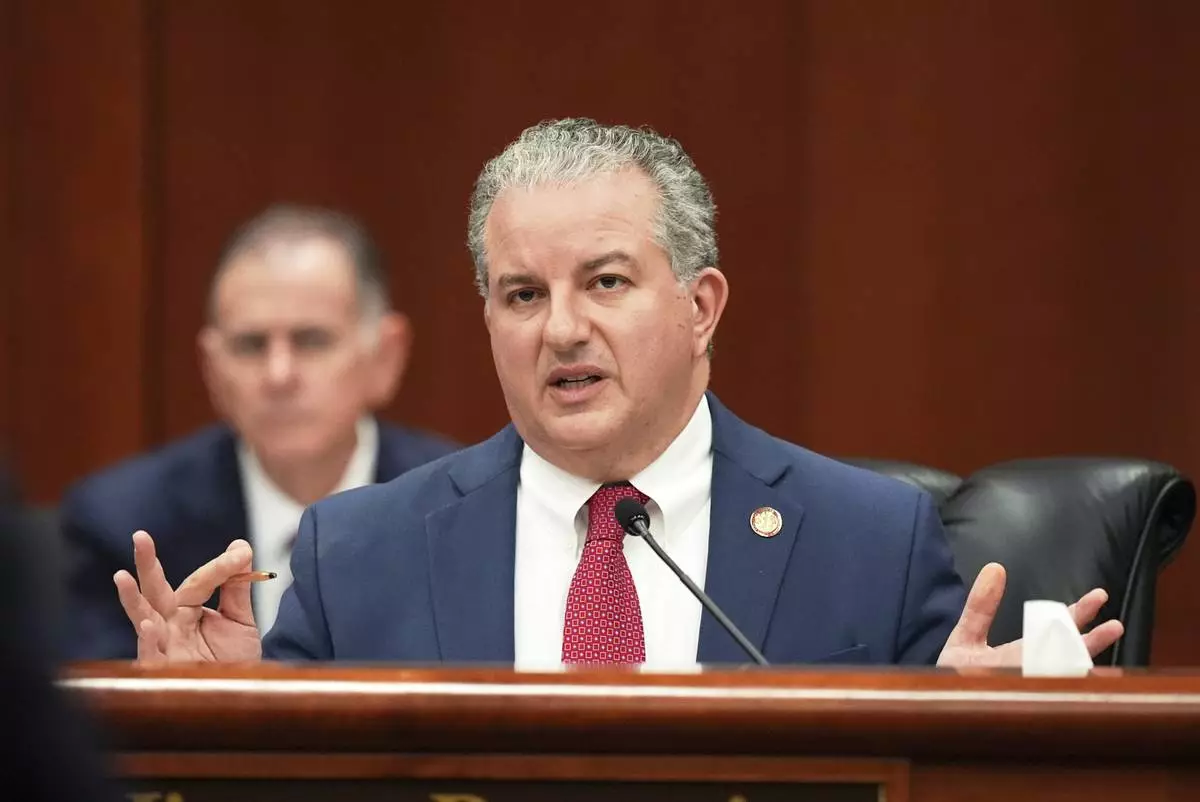
FILE - Florida Chief Financial Officer Jimmy Patronis speaks during a meeting between Gov. Ron DeSantis and the state cabinet at the Florida capitol in Tallahassee, Fla., on March 5, 2025. (AP Photo/Rebecca Blackwell, File)
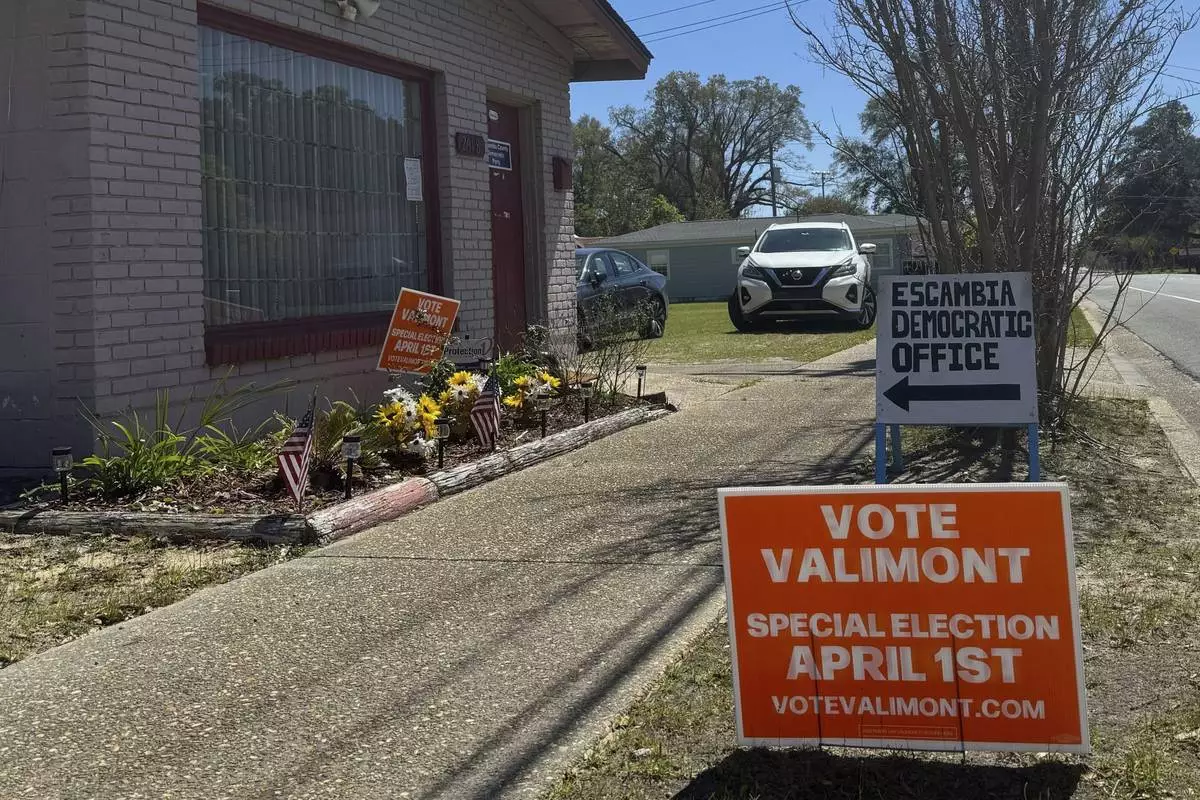
FILE - A sign for Democrat Gay Valimont is displayed outside the Escambia County Democratic Party office in Pensacola, Fla. on March 18, 2025. (AP Photo/Kate Payne, file)


